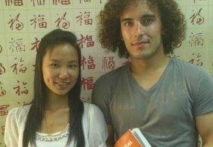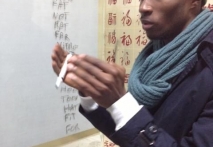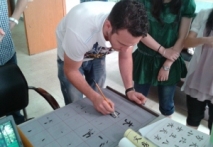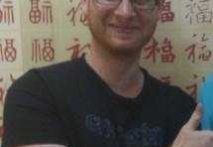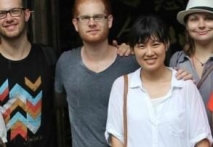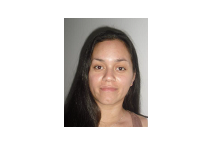Latest News
- Wuxi's Nanchang Street--a historic cultural district that combines classical charm, delicious food, and fun activities
- chinese study
- lastest courses
- Business Assistance/International Consortium of Stem Cell Research
- Foreigner's view of Jiangsu -Changzhou Jintan starts
- estimonials for Our new French Internship student Anais 企业表扬信
- The Double Seventh Festival in China Introduction
- Chinese Proficiency Test (HSK)
- China University Mining and Technology
- Wuxi Library
Students Say
Mandarin Student Zack
Mandarin Education School is a great place to learn Chinese and Chinese Culture.I've learned a lot in this school, my Chine...
Learn Chinese Travel China
If you want to learn Chinese and also discover China, Mandarin Education organize the most funny and cultural study tour.
The...
suzhou Mandarin Jude
I am Jude, I am learning Mandarin in Suzhou Mandarin School,I was learning in Wuxi Mandarin Education too.I like my Chinse Teacher...
chinese class
Improve your reading, speaking and your writing by experiencing our teaching methods,Offer free student Visa.
...
Wuxi Mandarin Jessie
I've learned Chinese for almost 8 years, I can understand what Chinese people say,but when I speak, I feel very uncomfor...
Chinese Internship or Jobs
You are looking for a professional experience abroad? Get the opportunity to discover the Chinese business,Look for an ...
Mandarinedu Student Florent
I love my Wuxi Mandarin Education School. It is the EASY MANDARIN Learning way, I am learning faster than I wanted.My teach...
Mandarin E Learning
Mandarin Education School offers you Online Chinese Courses. It has never been so easier to have Chinese courses ...
Mandarin Student Brad
I am studying Chinese in Mandarin Education School. I can speak quit good Chinese and talk to Chinese people by myself. Thank...
Wuxi Mandarin edu. Student Jennifer
I love learning Chinese in Mandarin Education School.That's a great place to learn and make friends.
...
Add Our School Official
to get more informations

0086 1866 1199 988
0086 510-81151808
Sandy.Swun
519988808
Mandarin Education School
Room 405, 4 Fl,Building No.8,
Maoye Business Center,
Chang jiang No.1,
New district , Wuxi City , China
汉语拼音 Chinese Pīnyīn
Function:Just like the phonetic alphabets in English, Pīnyīn helps us to read Chinese words.Formation:
Initials 声母 shēng mǔ
Finals 韵母 yùn mǔ
Tones 声调 shēng diào
e.g. 你 (you) n-i-ˇ nǐ
好 (good,fine) h-ao-ˇ hǎo
声调 shēng diào
The Chinese putonghua has four basic tones. They are shown by the tone-marks:ˉ(the 1st tone),ˊ(the 2nd tone),ˇ(the 3rd tone),ˋ(the 4th tone). Different tones may express different meanings.
bā bá bǎ bà
eight pull target dad
mā má mǎ mà
mum numb horse scold
Place of the Tone-mark
1. The tone-mark should be placed over the vowels,eg:
lā, gōng, chē
2. When a tone-mark is placed above the vowel i, the dot over it must be left out,eg:
bì,lín,tīng
3. A compound final carries two or more vowels, the tone-mark is placed over the vowel which pronounced with the mouth opening wider and louder,usually a,o,e,eg:
lái, piào, dōu
轻声(the Neutral Tone)
Every Chinese character in Chinese Putonghua has its specific tone.But sometimes,in a word or a sentence some syllables lose their original tones and become weak and short, therefore it is called the neutral tone.The neutral tone syllables are shown by the absence of the tone-mark, for example:
Bàba 爸爸(father,dad)
māma 妈妈(mother, mum)
声母 shēng mǔ
Consonants, 21
When used as initials, the following consonants are pronounced roughly the same as they are in English.
b p m f d t n l g k h j s
b
bō luó
菠萝 (pineapple)
bà ba
爸爸 (dad)
P
pó po
婆婆(mother-in-law)
pǎo bù
跑步 (running,run)
m
mā mā
妈妈 (mum)
mǎi
买 (buy)
f
chī fàn
吃饭 (eating)
fēng
风 (wind)
d
dà
大 (big, huge)
dìdi
弟弟 (younger brother)
t
tī zi
梯子 (ladder)
tài yáng
太阳(sun)
n
nán rén
男人 (male,man)
ná
拿 (take,pick,hold)
l
lóng
龙 (dragon)
kuài lè
快乐(happy)
g
gē ge
哥哥 (older brother)
gāo
高 (tall, high)
k
kě
渴 (thirsty)
kǎo shì
考试(exam)
h
hé
河 (river)
hǎi
海 (sea)
j
jī
鸡 (chicken)
jiā
家( home)
s
sì
四 (four)
sī niàn
思念 (miss someone)
Tips
1.h sounds like "h" in the English word"her", but it must be added more friction of the breath than it is in English.
2.p sounds like "p" in the English word"port"; t sounds like"t" in the English word"term";k sounds like "k"in the English word"key";But the Chinese p,t,k must be articulated with much more aspiration than they are in English.
When used as initials, the following consonants are pronounced quite differently from what they are in English.
q x z c zh ch sh r
q
qī
七 (seven)
qián
钱(money)
x
xī
西(the west)
xǐ huān
喜欢(like)
z
zì
字(characters)
zuò
坐(sit)
c
cài
菜 (vegetable, dishes)
cāi
猜(guess)
zh
zhè
这(this)
zhàn
站 (stand)
ch
chī
吃(eat)
cháng
长(long)
sh
lǎo shī
老师(teacher)
shí
十 (ten)
Listen to all of the 21 Initials and repeat them
b p m f d t n l
g k h j q x zh
ch sh r z c s
r
rén
人 (human,people)
rè
热 (hot)
韵母 yùn mǔ
39, vowels,or vowel+n/ng
Single finals
a ā á ǎ à
o ō ó ǒ ò
e ē é ě è
i ī í ǐ ì
u ū ú ǔ ù
ü ǖ ǘ ǚ ǜ
i
1. When i stands by itself as a syllable, it should be written as yi.
2. i should be written as y when it is placed at the beginning of a final standing by itself as a syllable, or y is added before i,eg:
ia-ya ie-ye iou-you iang-yang
u
1. When u stands by itself as a syllable, it should be written as wu.
2. When u combines with other finals to form syllables, it should be written as W,eg:
ua-wa uo-wo uei-wei uan-wan
